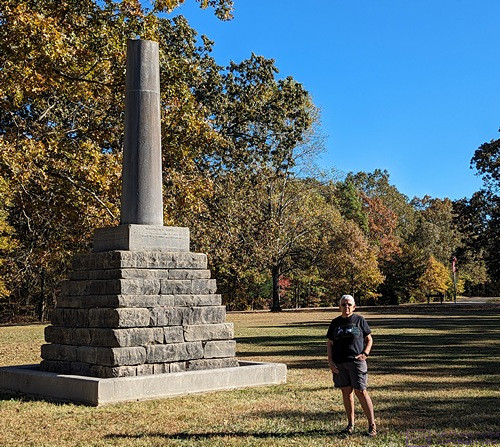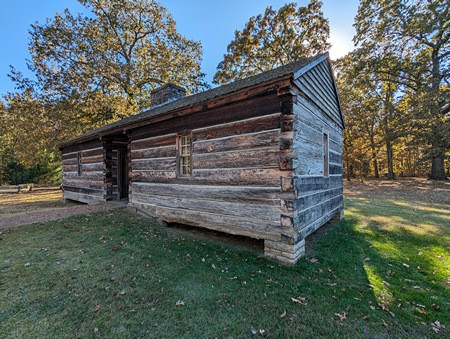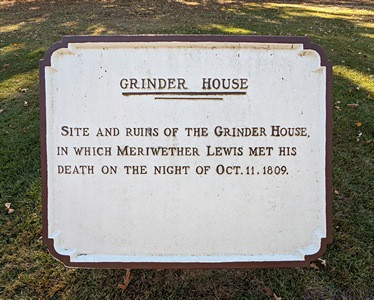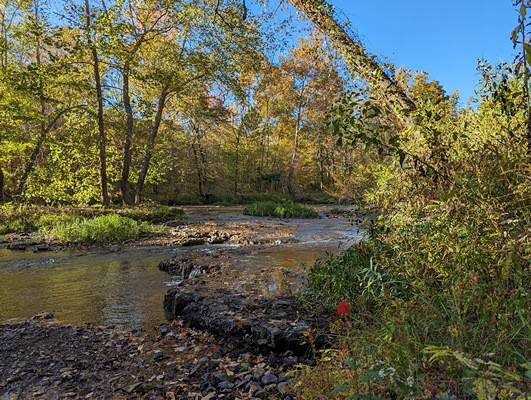Note: This post contains 7 photos. Photos by me (Bruce) taken with a SONY alpha 6400 or Google Pixel 6 Pro unless otherwise indicated. Photos by Linda taken with a Google Pixel 6.
SATURDAY 21 October 2023 — NTNP 4 of 14 — North end NTNP and Meriwether Lewis
Today was a relocation day in which we moved the travel trailer from the Grand Ole RV Resort in Goodlettsville, Tennessee to Fall Hollow Campground, RV Park, and B&B in Hohenwald, Tennessee. Again, we camped here for two nights. As RV parks go, this was not a great place and we did not have a great site. But we had a FHU site, and the campground was located the desired distance from our previous RV park, so it served its purpose of moving us on down the road and using the full day (tomorrow) to explore the next section of the Trace within reasonable driving distance of the RV park.
The Natchez Trace National Parkway is not just a pretty drive on a nice paved road; it is that, but it is much more. Although 440 miles long between it’s northern and southern termini, it is sometimes narrow enough that you could throw a ball across it. In the wider sections, it is still rarely even a mile wide. It is also a trail (Trace is French for trail) through history, and that history includes the indigenous people that lived in this part of what became North American long before Europeans arrived on the continent, and were still very much here as the USA expanded westward in the many decades following the War of Independence.
We quickly discovered, but were not surprised, that the National Park Service had done their usual exemplary job of making an overarching view of this history available to those travelers who were willing to take the time to read information placards, walk the trails, and ponder the few remaining remnants of a past era.
And, as history is want to do, there were intersections with other aspects of USA history that we did not know about or expect. One of those intersections had to do with Meriwether Lewis, of the Lewis and Clark Expedition, and the Louisiana Purchase. Lewis, who was President Thomas Jefferson’s private secretary, ended up in this area of the Trace, very much in debt as a result of the expedition. Despondent about the inability of the Government (congress) to reimburse him for expenses, he took his own life on October 11, 1809. Perhaps we learned this in our high school American History class but if so, I did not recall it. We did not learn why he came he, so that is a question left for the reader.
The following photos highlight a few additional aspects of this portion of the NTNP.
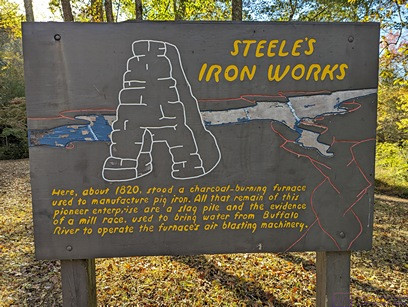
Information sign for the STEELE’S IRON WORKS site. Dating from 1820, a charcoal burning furnace located here was used to make pig iron. Metal Ford crosses the Buffalo River just beyond this sign.
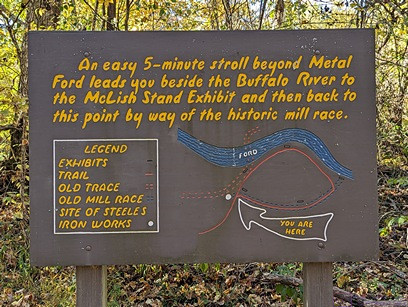
Metal Ford was a natural rock ledge that made it possible to cross (ford) the River at this place by the Steele’s Iron Works. Crossing creeks, streams, and rivers was one of the many challenges of transiting the Trace.
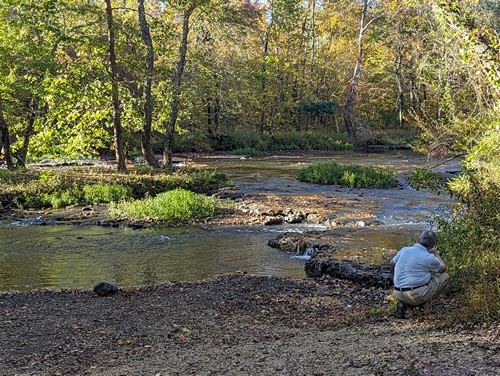
Linda captures a picture of me positioning myself to get a photo of Metal Ford at the Steele’s Iron Works site, NTNP. (Photo by Linda.)
…
